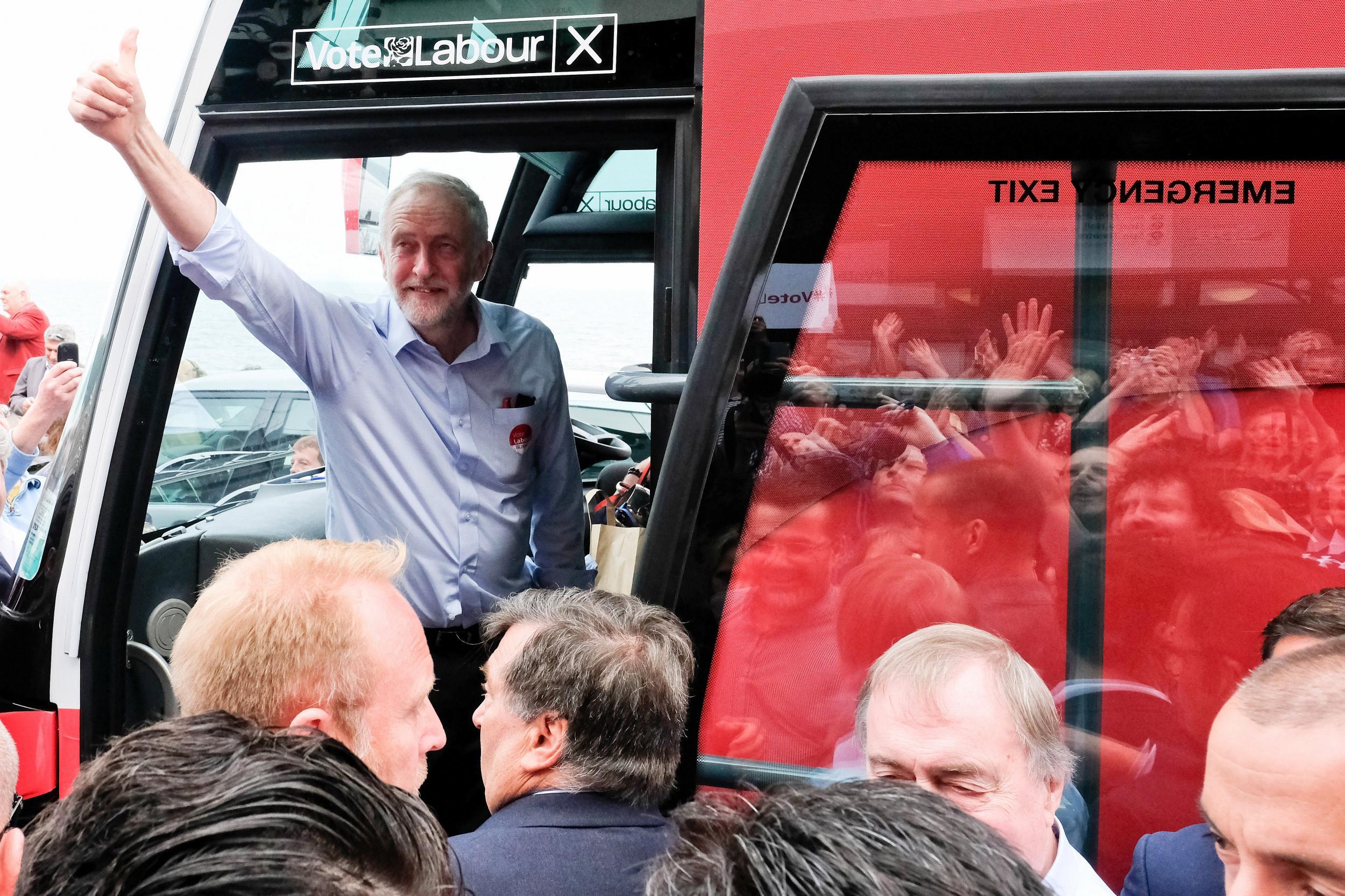Even if he loses the election, this isn't the end of Jeremy Corbyn – it may only be the beginning
‘At least we’ll get rid of Corbyn’ is a phrase I heard from several Labour MPs when the snap election was called. Now they are not so sure


“Don’t worry about Jeremy Corbyn; we’ll get him out straight after the election,” the Labour candidate and prominent critic of his party leader told one voter on the doorstep in his marginal seat.
As they fight for their survival as MPs, it has suited some Labour candidates to concede that their party cannot win power. Normally that would be a depressing thought, but it is less so this time. “At least we’ll get rid of Corbyn” is a phrase I heard from several Labour MPs when the snap election was called. Now they are not so sure.
Corbyn’s critics acknowledge that they underestimated him, that his good campaign has interrupted Theresa May’s regal procession to a landslide. They still expect the Conservatives to win, but concede there are doubts about the scale of their victory.
If Labour had suffered the crushing campaign defeat Corbyn’s critics expected, Yvette Cooper and Chuka Umunna would probably have been quick out of traps on Friday morning in calling on him to resign, and making clear they were ready to challenge him for the leadership.
Again, they are not so sure now. If Corbyn does better than Gordon Brown’s 29 per cent share of the vote in 2010, and Ed Miliband’s 30 per cent in 2015, he will win plaudits from party members energised by his campaign and a long manifesto wish list they loved. So his critics now realise that a second leadership challenge could fail, just like Owen Smith’s abortive strike last year. Corbyn could lose the election but win a third leadership contest.
Another scenario is now being discussed by his internal opponents: for Tom Watson, the deputy leader, to negotiate Corbyn’s orderly departure, perhaps with the help of the big trade unions. There’s only one problem: Watson tried this last summer, and got nowhere. There is no reason to think he would get any further this time after Corbyn’s strong campaign. As Ian Lavery, Labour’s campaign coordinator, put it: “Whatever happens in the election isn’t the end in the Corbyn project, it’s only the beginning.”
So the critics might have to bide their time. A respectable showing by Labour of more than 30 per cent would also make the formation of a breakaway centre party less likely. It is certainly being discussed behind the scenes, but would be less viable if Labour is alive and kicking rather than dying on its feet.
His opponents would still not be reconciled to Corbyn’s leadership. They set a different benchmark for his survival: he should be gaining seats from the Tories, not losing them. As one told me: “May has fought the worst campaign by any party in living memory. She has imploded in front of the nation, and we still won’t win. Jeremy should have done better. We will need a different leader to win back our former supporters who vote Tory for the first time.” Another said: “This was Jeremy’s campaign on his terms and policies. So the result is his too. It shows that he will never win.”
Of course, the ammunition fired off by both Labour camps will depend on the precise result. But while predicting victory in public, they practise their lines in private.
The Corbynistas will argue that the popular support for their man’s policies shows that he has turned the Blairite thesis on its head: rather than fit policies around the opinion polls, Corbyn has led public opinion. His programme is right for the times; the Blairites want to turn the clock back. They will say that, after shifting the party’s centre of gravity to the left, Corbyn has now done the same to the country. (I am a little sceptical, however, about what some see as a Tory lurch to the left under May. I’m not sure how that fits with grammar schools, fox hunting, the immigration target and a hard Brexit).

There is one argument Corbyn’s allies will make that his critics will struggle to answer: that they never accepted his leadership and have undermined him from day one. The overwhelming vote of no confidence in him by the Parliamentary Labour Party, and critical comments by his own MPs, have inevitably been replayed by the media during this election campaign.
The calibre of the shadow Cabinet would have been much higher if the likes of Cooper, Umunna, Hilary Benn and several others had served in it rather than formed their shadow shadow cabinet on the back benches.
I don’t believe that Labour would necessarily have won if his party had rallied fully behind Corbyn, although it might have done better against this feeble Tory campaign. What matters is that the Corbynistas will believe it, and say it. The “if only you had supported him” jibe will wound his enemies within.
Join our commenting forum
Join thought-provoking conversations, follow other Independent readers and see their replies
Comments